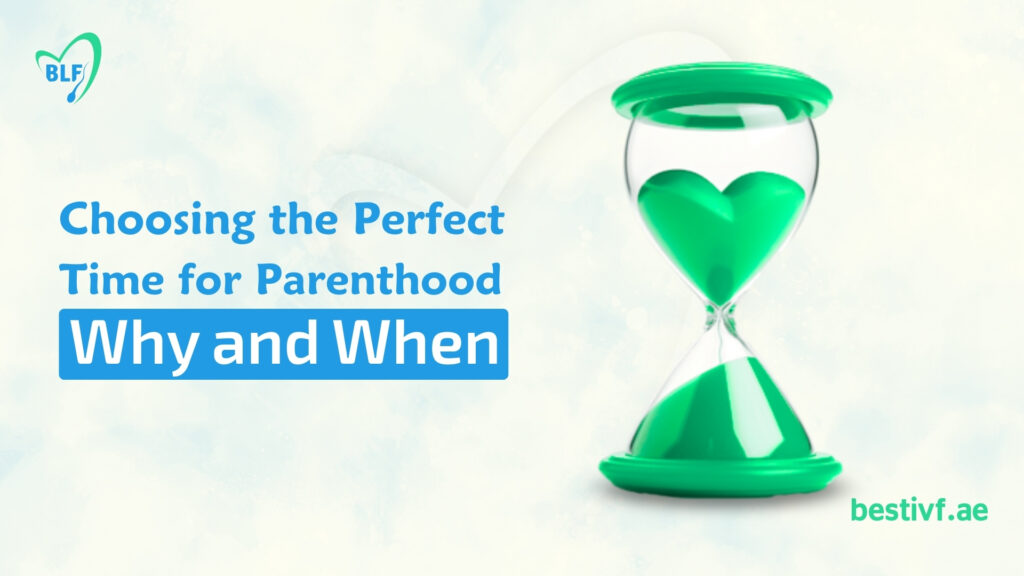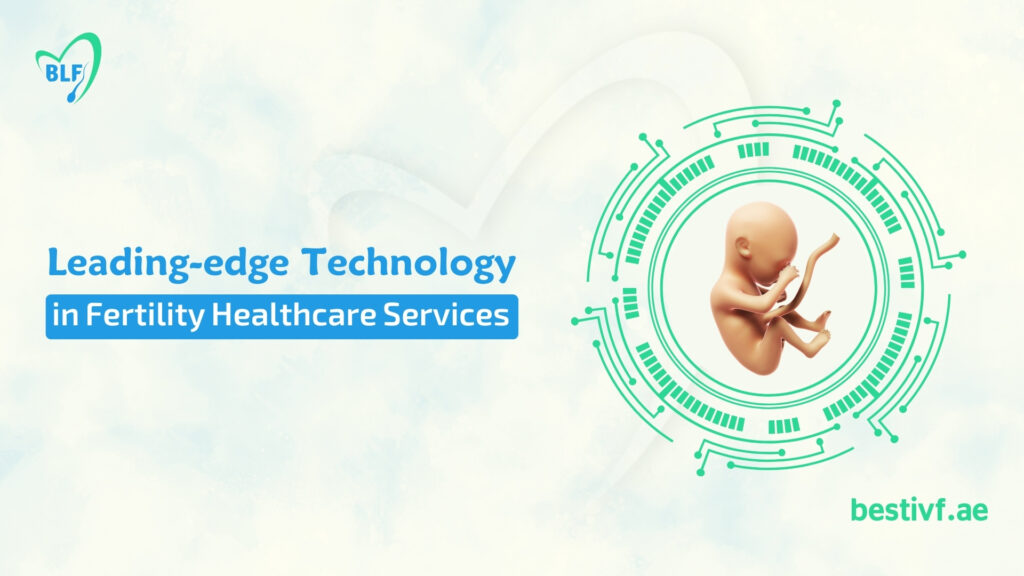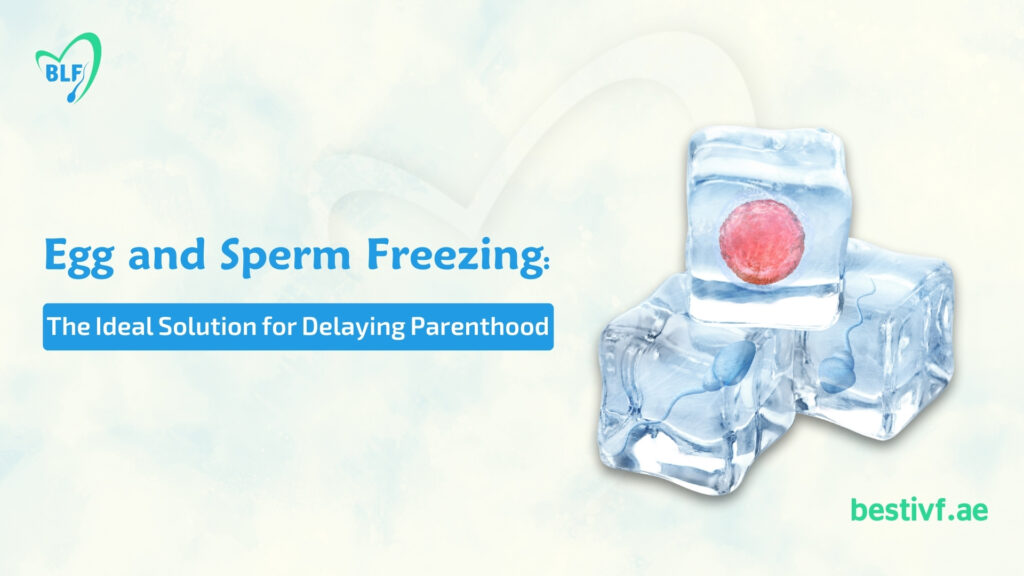As life unfolds, many couples may find themselves faced with a pressing question: how can we preserve our fertility and ensure the possibility of starting a family in the future? Whether it’s due to medical reasons, personal circumstances, or simply a desire to have options down the road, fertility preservation has become an increasingly popular and viable option. In this blog post, we will explore the various methods and techniques available for preserving fertility, including egg freezing, sperm banking, and embryo cryopreservation. We will delve into the reasons why couples might consider fertility preservation, the process itself, and the potential benefits and considerations involved. Join us as we navigate the intricacies of planning for the future of your family through fertility preservation.

Table of Contents
ToggleWhy consider fertility preservation?
When it comes to family planning, there are many factors to consider. One aspect that is often overlooked is fertility preservation. While it may not be a topic that comes to mind immediately, there are several reasons why couples should consider fertility preservation.
First and foremost, fertility preservation allows couples to take control of their reproductive health and make informed decisions about their future family planning. Whether it’s due to medical reasons, personal circumstances, or simply wanting to extend the option of having biological children later in life, fertility preservation provides a safety net and peace of mind.
Secondly, fertility preservation can be beneficial for individuals undergoing medical treatments that may impact their fertility. Treatments such as chemotherapy, radiation therapy, or certain surgeries can have detrimental effects on reproductive organs and overall fertility.
By preserving eggs, sperm, or embryos through freezing techniques, couples can increase their chances of having biological children in the future.
Moreover, fertility preservation can also be a viable option for those who are not yet ready to start a family but want to ensure they have the option later on. Whether it’s due to career goals, or financial stability, or medical conditions, fertility preservation allows couples to prioritize important aspects of their lives without sacrificing their chances of having children when they’re ready.
Lastly, fertility preservation can provide emotional and psychological benefits. The fear of infertility or the inability to conceive can be a significant source of stress and anxiety for many couples . Knowing that fertility preservation options are available can alleviate some of these concerns and provide a sense of empowerment and control over one’s reproductive future.
Considering fertility preservation is a proactive and forward-thinking approach to family planning. It allows couples to have more options and flexibility when it comes to starting a family, whether it’s immediately or in the years to come. By taking this step, couples can ensure that their dreams of parenthood can be realized, regardless of the circumstances that may arise along the way.

Methods of fertility preservation
When it comes to planning for the future of your family, fertility preservation is a topic that shouldn’t be overlooked. Whether you are facing medical treatments that may impact your fertility or simply want to ensure the possibility of having children later in life.
At Best Life Fertility Center, we are proud to have the most advanced cutting edge technologies available to ensure the best treatments are provided to our patients, accompanied with our doctors long expertise in the field of reproductive healthcare, we can guide you through the process, explain the options available, and help you make an informed decision about your family plans, and empower couples to have more knowledge and control over their reproductive choices.
There are several methods available for fertility preservation, One common method is egg freezing, also known as oocyte cryopreservation. This involves the retrieval and freezing of a woman’s eggs for later use. The eggs are carefully stored in a cryopreservation facility and can be thawed and fertilized with sperm when the time is right.
Another option is sperm freezing, which is specifically for men who want to preserve their fertility. Sperm is collected and frozen, allowing it to remain viable for future use in assisted reproductive techniques like in vitro fertilization (IVF).
Embryo cryopreservation can be considered for many couples.This involves the fertilization of eggs with sperm, resulting in embryos that can be frozen for later use. This method is commonly used in cases with couples undergoing IVF treatment, as it allows for the preservation of embryos that are not immediately transferred.
It’s important to note that the success rates of fertility preservation methods can vary, and there are certain factors to consider, such as age and overall health, which can impact the outcome. Consulting with a fertility specialist is crucial to understand which method is best suited for your unique situation. Fertility preservation provides hope and the opportunity to plan for the future of your family. By exploring these methods, you can take proactive steps towards preserving your fertility and ensuring the possibility of having children when the time is right for you.

Freezing eggs and sperm
Freezing eggs or sperm, also known as fertility preservation, is an increasingly popular option for couples who want to plan for the future of their family. The process involves collecting and freezing eggs or sperm for an extended period of time, allowing couples to preserve their fertility and have the option to conceive at a later time when the timing is right.
Egg freezing, or oocyte cryopreservation, is a process that involves stimulating the ovaries to produce multiple eggs, which are then retrieved through a minimally invasive surgical procedure, the collected eggs are then carefully frozen using a process called vitrification, which ensures their long-term preservation for future use. This is an ideal option for women who want to delay pregnancy due to personal or medical reasons, such as pursuing career goals, undergoing medical treatments. By freezing their eggs, women can essentially pause their biological clock and have the option to start a family when they are ready.
Sperm freezing, on the other hand, is a simpler process, usually involving the collection of semen samples to be carefully frozen for later use.
This option is popular among men who may face fertility challenges in the future due to medical treatments, such as chemotherapy, or those who are planning to undergo a vasectomy.
By freezing their sperm, men can ensure that they have viable sperm available for assisted reproductive techniques, such as in vitro fertilization (IVF), when they are ready to start a family.
Both egg freezing and sperm freezing offer couples the opportunity to take control of their reproductive health and family planning. Whether due to medical reasons, personal choice, or other circumstances, By banking their eggs or sperm, couples can focus on their goals while also ensuring their ability to have biological children later in life
These procedures have advanced significantly in recent years, with improved success rates and higher chances of achieving pregnancy.
At Best Life Fertility Center, we will guide you through the process, address any concerns or questions you may have and ensure that you make informed decisions about your fertility preservation journey, allowing you to pursue your goals or to overcome any medical condition while still having the option to have biological children when the time is right.
Embryo cryopreservation
Embryo cryopreservation is a significant advancement in the field of fertility preservation. It allows couples to freeze and store embryos for future use. This process involves the careful extraction of eggs and sperm, which are then fertilized in a laboratory setting to create embryos. These embryos are then cryopreserved, or frozen, using specialized techniques to ensure their viability for an extended period of time.
One of the primary reasons why couples opt for embryo cryopreservation is to preserve their fertility before undergoing medical treatments that may affect their reproductive abilities. For example, the father or the mother might be undergoing chemotherapy or radiation therapy, the reason why they choose to freeze embryos to increase their chances of having biological children once their treatment is completed.
Additionally, couples experiencing fertility issues or those who want to delay parenthood can also benefit from this procedure. Embryo cryopreservation offers a range of advantages. It allows couples to plan their families on their own terms, providing a sense of control and peace of mind.
Moreover, this technique has a high success rate, with thawed embryos exhibiting similar pregnancy rates as fresh embryos. This means that when couples are ready to start a family, the cryopreserved embryos can be thawed, transferred to the uterus, and result in a successful pregnancy.
The process of embryo cryopreservation is carefully regulated and requires the expertise of skilled fertility specialists. The embryos are extracted and cryopreserved using a process known as vitrification, which involves rapid freezing to prevent the formation of ice crystals that could damage the cells. The embryos are stored in specialized tanks filled with liquid nitrogen at ultra-low temperatures, ensuring their long-term preservation.
When couples are ready to use their cryopreserved embryos, the thawing process is carefully orchestrated by the fertility clinic. The embryos are thawed slowly, allowing them to regain their normal cellular function before being transferred to the uterus.
The success of the procedure depends on various factors, including the quality of the embryos and the couples reproductive health. Embryo cryopreservation has revolutionized the field of fertility preservation, offering hope and options for couples who wish to preserve their ability to have children in the future. It provides a practical and effective solution for those faced with medical treatments or other circumstances that may potentially impact their fertility. By embracing this technique, couples can confidently navigate their journey towards parenthood while preserving their future possibilities.

The process of fertility preservation
The first step in the process is to consult with a fertility specialist. They will assess your individual circumstances and discuss the available options for fertility preservation. These options may include egg freezing, sperm freezing, or embryo freezing, depending on your specific needs and reproductive goals.
For women, egg freezing is a common method of fertility preservation. This involves stimulating the ovaries to produce multiple eggs, which are then retrieved through a minimally invasive procedure. The eggs are then carefully frozen and stored for future use.This process allows women to preserve their eggs at a younger age, when they are typically of higher quality.
Similarly, men can undergo sperm freezing to preserve their fertility. This involves providing a sperm sample, which is then processed and frozen for future use. Sperm freezing is a relatively straightforward procedure that can be done quickly and easily, offering men the opportunity to preserve their fertility.
The process of embryo freezing involves fertilizing retrieved eggs with sperm to create embryos, which are then frozen and stored. In the future, these embryos can be thawed and transferred to the uterus for pregnancy. It is important to note that the process of fertility preservation typically involves the use of assisted reproductive technologies, such as in vitro fertilization (IVF). These procedures require careful coordination and monitoring by a fertility specialist to ensure the best chances of success.
In addition to the medical aspects, it is crucial to consider the emotional implications of fertility preservation. It can be an emotionally charged journey, as couples make decisions about their reproductive future. At Best Life Fertility Center, we are honored to build a strong support system to help our patients through every step of their journey. By providing our patients a kind, healthy, understanding and positive environment filled with knowledge and empowerment, we believe we can help couples overcome emotional challenges and fulfill their dreams of having a healthy family.

How successful is fertility preservation ?
Fertility preservation has become an increasingly popular option for couples who want to preserve their fertility for the future. Whether it’s due to medical reasons, career aspirations, or personal choices, many people are now considering fertility preservation as a way to ensure their reproductive options down the line.
But how successful is fertility preservation, and what can you expect from the process?
The success of fertility preservation largely depends on the method chosen and couples factors such as age, overall health, and the reason for preserving fertility.
Egg freezing, also known as oocyte cryopreservation, has seen significant advancements in recent years, leading to higher success rates.The success of egg freezing depends on factors such as the age at which the eggs were frozen and the number of eggs retrieved. Generally, the younger the mother and the more eggs collected, the higher the chances of success when it comes to future fertility treatments.
The Embryo freezing method offers high success rates, as embryos have a high chance of surviving the freezing and thawing process. When the time comes to use the embryos, they can be transferred to the uterus through in vitro fertilization (IVF).
It’s important to note that success rates can differ between couples and depend on various factors. Age is a crucial factor, as fertility declines with age, and younger parents tend to have better success rates. It’s recommended to consult with a fertility specialist who can assess your specific situation and provide tailored guidance based on your individual circumstances.
While fertility preservation methods can vary, advancements in technology and scientific research have significantly improved the chances of success. By considering fertility preservation options and seeking professional guidance, couples can take proactive steps to preserve their fertility and have more control over their reproductive futures.
Conclusion
Preserving fertility is an important topic that should be discussed and understood by everyone. Whether you are currently facing a medical condition that may affect your fertility, or you simply want to be proactive and plan for the future, fertility preservation offers a solution.
Throughout this comprehensive guide, we have explored various methods and techniques to preserve fertility, such as egg freezing, sperm freezing, and embryo freezing. We have discussed the importance of consulting with a fertility specialist, and understanding the success rates of different preservation methods. By taking the time to educate yourself and make informed decisions, you can take control of your reproductive future.
Fertility preservation allows couples to have peace of mind, knowing that they have options and possibilities for building a family, even if circumstances change. Remember, your fertility is personal and unique to you, and there is no one-size-fits-all approach. By working with fertility experts and taking proactive steps, you can preserve the possibility of having children when the time is right.


